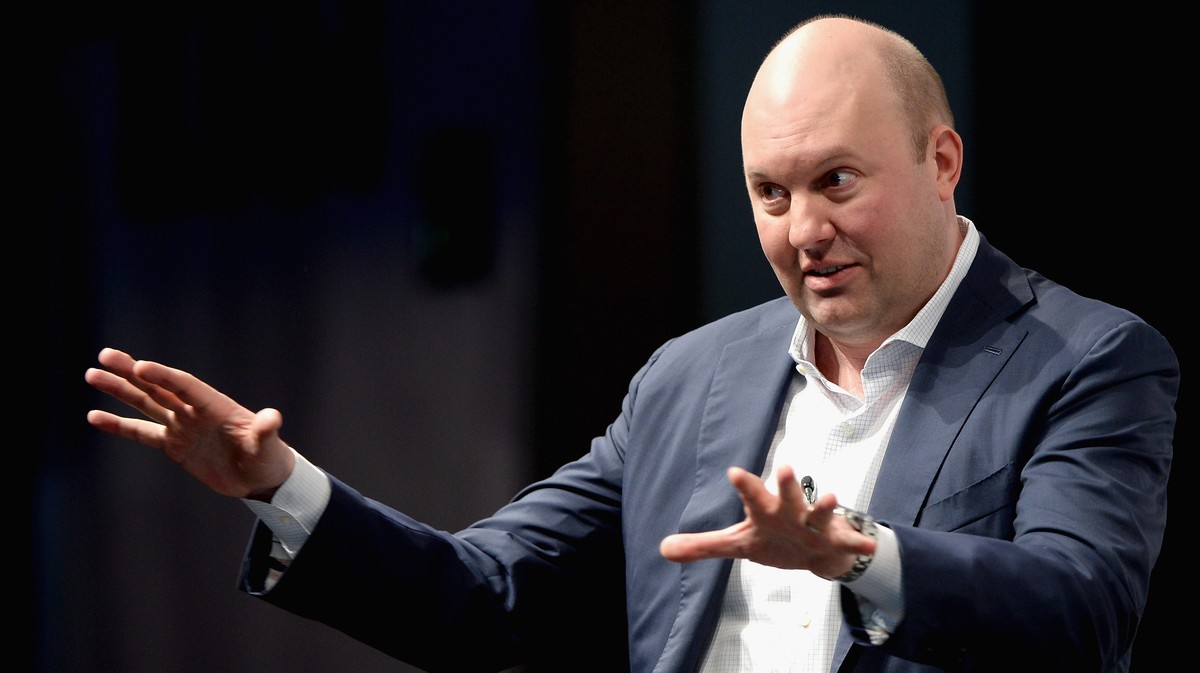Tech Investor Marc Andreessen's Controversial Manifesto on AI and Fascism
Belangrijkste concepten
Marc Andreessen argues for uninhibited AI development as the solution to capitalism's problems, linking deceleration of AI to preventable deaths. He associates with techno-libertarian beliefs and controversially praises figures linked to fascism.
Samenvatting
In a lengthy manifesto, tech investor Marc Andreessen advocates for unimpeded AI advancement as the remedy for capitalism's issues, equating hindering AI progress to causing preventable deaths. He aligns with techno-libertarian ideologies, criticizing concepts like sustainability and tech ethics as part of a "mass demoralization campaign" against technology. The manifesto also glorifies figures associated with fascism, sparking controversy within the tech industry.
Samenvatting aanpassen
Herschrijven met AI
Citaten genereren
Bron vertalen
Naar een andere taal
Mindmap genereren
vanuit de broninhoud
Bron bekijken
www.vice.com
Major Tech Investor Calls Architect of Fascism a 'Saint' in Unhinged Manifesto
Statistieken
According to Marc Andreessen, any deceleration of AI will cost lives.
Universal Basic Income is criticized in the manifesto as potentially turning people into "zoo animals farmed by the state."
Effective accelerationists believe that letting capital flow upwards under benevolent billionaire autocrats is crucial for saving humanity.
Citaten
"We believe any deceleration of AI will cost lives."
"Universal Basic Income would turn people into zoo animals to be farmed by the state."
"The only way to save the human species is by letting capital and resources flow upwards."
Belangrijkste Inzichten Gedestilleerd Uit
by om www.vice.com 10-17-2023
https://www.vice.com/en/article/93kg5d/major-tech-investor-calls-architect-of-fascism-a-saint-in-unhinged-manifesto
Diepere vragen
How does effective accelerationism impact technological innovation beyond Silicon Valley?
Effective accelerationism, as championed by figures like Marc Andreessen, has a significant impact on technological innovation beyond Silicon Valley. This ideology promotes the idea that unrestricted capitalism and rapid technological advancement are the keys to solving societal problems. By prioritizing AI development and advocating for minimal regulation, proponents of effective accelerationism believe that progress can only be achieved through unbridled growth and innovation.
This mindset influences not just the tech industry but also policymakers, investors, and entrepreneurs globally. The push for uninhibited AI development aligns with the interests of many in the technology sector who seek to maximize profits and market dominance. As a result, countries around the world are increasingly investing in AI research and implementation to stay competitive in this rapidly evolving landscape.
Furthermore, effective accelerationism shapes public discourse around technology and its role in society. By framing any deceleration of AI as potentially costing lives or hindering progress, advocates create a sense of urgency that drives decision-making at various levels. This can lead to policies favoring tech companies over other stakeholders or overlooking potential ethical concerns associated with unchecked technological advancement.
In essence, effective accelerationism serves as a guiding principle for many involved in shaping the future of technology worldwide, influencing everything from research priorities to investment strategies.
What counterarguments exist against Marc Andreessen's techno-optimist manifesto?
Counterarguments against Marc Andreessen's techno-optimist manifesto challenge several key aspects of his beliefs regarding technology and society. One primary critique revolves around his unwavering faith in capitalism and AI as solutions to all problems without considering potential negative consequences.
Critics argue that prioritizing profit-driven innovation over social welfare can exacerbate existing inequalities rather than address them. The dismissal of concepts like sustainability, ethics in tech development, or risk management is seen as shortsighted and irresponsible when considering long-term implications for society.
Moreover, Andreessen's characterization of those who question unfettered technological growth as enemies promoting mass demoralization is viewed as an attempt to stifle dissenting voices rather than engage constructively with differing perspectives. This approach limits meaningful dialogue on how best to harness technology for collective benefit while mitigating potential harms.
Additionally, historical associations with fascist ideologies among some figures cited by Andreessen raise concerns about the underlying values driving his techno-optimist vision. By glorifying individuals linked to authoritarian regimes or anti-democratic movements under the guise of patron saints of techno-optimism, critics argue that such endorsements undermine trust in his broader arguments about advancing technology for societal good.
How can historical associations with fascism influence modern technological ideologies?
Historical associations with fascism have profound implications for modern technological ideologies by shaping underlying values and belief systems within these frameworks. When influential figures like Marc Andreessen invoke individuals tied to fascist movements—such as Filippo Tommaso Marinetti—in their manifestos on accelerating technology development without acknowledging their problematic pasts or ideologies' consequences it raises red flags about their motivations.
By venerating individuals associated with fascist thought within contemporary discussions on tech progress effectively normalizes extremist ideas while eroding critical scrutiny essential for responsible innovation governance practices.
The use of terms like "patron saints" implies reverence towards these historical figures despite their troubling legacies which could inadvertently legitimize harmful political philosophies if left unchallenged.
Furthermore linking futurist thinkers who supported authoritarian regimes directly impacts perceptions surrounding present-day efforts aimed at leveraging advanced technologies ethically responsibly given history’s lessons concerning misuse power oppression
Overall understanding how historical ties fascistic ideals inform current debates surrounding advancements artificial intelligence digital transformation crucial ensuring ethical considerations remain central conversations shaping our future societies technologies
0
